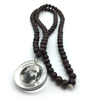Mind the Gap: A Memoir of Enquiry

Andrew Maynard reviewed Steve Small’s (Sudesh) memoir.
Gap Years
The subject of Steven K. Small’s Mind The Gap is, as he describes it on the cover, “a memoir of enquiry”. It is his unremitting search to make sense of the universe and identify how he fits into it. There is a keen, sustained note of yearning and feeling that runs throughout the book. I am of the author’s generation, but whilst he was encountering the ‘void’ in real life as he confronted the question of his identity, I was reading about it in the pages of Sartre. Human consciousness, I learnt, was pure flight and pursuit, never attaching to anything, perpetually defining itself as a ‘not’. To renounce that essential freedom by cloaking oneself in a persona – be it the bourgeois businessman or the working class radical, burnishing his brand of socialism to the tune of “I’m-more-Marxist-than-you-comrade” – was to slip into inauthenticity. To be authentic one had to confront the void. To do so was an unsettling, vertiginous experience. I did my best to avoid it. By contrast, the author courageously plunges into it, risking everything to make sense of what it is to be human.
This is essentially an earnest and thoughtful work, but in no way ponderous or solemn. It is leavened by humour and animated by a cast of colourful supporting characters ranging from his colleagues on the London Underground to the students who attended his adult education classes. There is an engaging account of 70’s counterculture: Bhagwan Shree Rajneesh and sannyasins, dynamic meditation and enlightenment intensives, Werner Erhard and EST, Tony Parsons and the North London podium gurus, all played out to background music from the Kinks, Pink Floyd and Captain Beefheart. The memoir also contains what is for me, without brothers or sisters, a vivid impression of what it might be like to have them in the striking portraits of his siblings, Anita and Chris.
The text is scattered with exquisite literary flourishes that sparkle like points of light from a summer stream. Take, for example, these three lines from Brushing, a poem composed by the author on one of his many walks:
How tender the brush of seeing
on the seen
hearing on the heard
The importance of country walks for the author comes across very strongly. They provide a nurturing environment in which he can periodically reassemble himself. He is a rambler across fields and woodlands but also, given the number of times the word appears in reference to the women in his life, a rambler in search of the perfect pixie. It is fitting that the final chapter features two long rural hikes and concludes with an appearance by his wife, Sylvia. The snippet of dialogue here is brilliantly placed, the humour and quirkiness expressed in her three disconnected observations supplying a coda to the rural symphony that precedes it. The domestic intimacy the author has found with her is strikingly conveyed by reference to a walnut whip – a careless Wispa amongst the whispering leaves – and this brief scene has an arresting incongruence about the language that serves to accentuate the newly-attained and hard-won congruence of the author. “Show, don’t tell” is the mantra of good memoir writing and here it is ably demonstrated. After two hundred pages of painful investigation, soul-searching and soul-baring, the author finally completes his journey and is awarded the prize of a wandering pickle, some leeks and a walnut whip.
Review by Andrew Maynard
Mind the Gap: A Memoir of Enquiry
by Steven K. Small (aka Prem Sudesh)
amazon.com
amazon.co.uk
Read a few excerpts from this book on Osho News
At 15, Steve (Prem Sudesh) Small was inspired by the Summer of Love to get expelled from school. At 20 he left London Underground for full immersion in 70s communes, psychedelics, experimental therapies and neo-sannyas. At 35, still meditating he began teaching adults in a multi-cultural London college. At 66 he lives in rural Somerset; sawing wood, carrying water, turning compost and walking the hills and vales.
- Log in to post comments
- 25 views
